The Impact of Excessive Energy Drink Consumption on the Liver
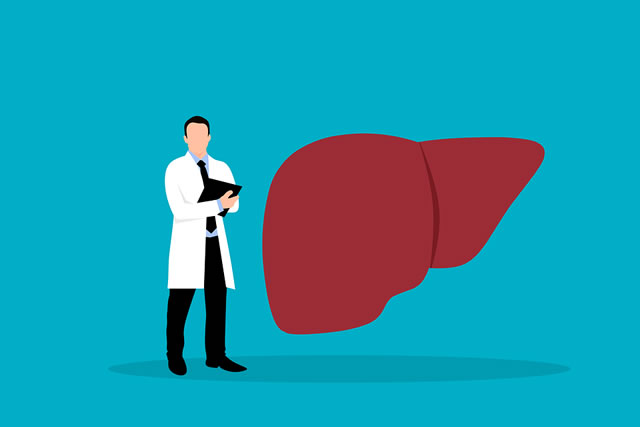
It is not uncommon to come across online information about liver dysfunction or elevated liver enzyme levels after excessive consumption of energy drinks, or during health checkups.
In this section, I’ll introduce a case that occurred in the United States and summarize whether excessive or regular consumption of energy drinks places a significant burden on the liver.
 Author: Energy Drink-kun
Author: Energy Drink-kun
In 2001, while living in the United States, I encountered energy drinks through the dance scene and was deeply impressed. After returning to Japan, I found that energy drinks were considered novelty beverages, so I established a comprehensive website in 2013 to share the true appeal of energy drinks. As an energy drink enthusiast, I began drinking them seriously again, collecting over 8,000 varieties of energy drinks from various countries. I am also active as a critic and expert, receiving media interviews.
Past Case in the United States

In 2016, a male manual laborer in his 50s from Florida, USA, drank 4 to 5 energy drinks every day for three weeks to stay energized for his work. He was later hospitalized with symptoms such as abdominal pain, vomiting, dark urine, and jaundice, which indicated some kind of liver disorder.
After tests, the following findings were summarized:
- There was no change in his usual diet over the 3 weeks.
- He did not use tobacco, alcohol, or drugs.
- He consumed 4 to 5 energy drinks daily.
- He had a history of C-type hepatitis.
- There was clear damage to his liver.
It was diagnosed that the vitamin B3 (niacin) in the energy drinks might have been the cause. However, since he consumed a safe daily amount of about 160–200mg of niacin from energy drinks, it was considered an unusual case.
By the way, the recommended daily intake of vitamin B3 for a man in his 50s in Japan is 14mg, and the tolerable upper intake level (UL) to prevent health issues from excessive consumption is 300mg per day. Therefore, the amount he consumed was not considered especially dangerous. Doctors speculated that the toxicity of vitamin B3 had accumulated over the three weeks, but it remains a bit unclear.
Reference Sites
Is It Safe to Drink 4–5 Energy Drinks Every Day?

In this case from Florida, the man consumed 4–5 energy drinks for three weeks, but his vitamin B3 intake was still within the safe upper limit. It's concerning, though, how dangerous it could be to drink that much energy drink every day.
Although it's unclear which brand of energy drinks he consumed, let's consider the typical ingredients of American energy drinks.
Caffeine
With 160mg of caffeine per can, drinking 4 cans would result in 640mg, and 5 cans would be 800mg. This is double the safe daily limit of 400mg. This amount of caffeine is worrisome not just for the liver, but for your health overall. If you also drink coffee or tea, this is definitely an amount to avoid.
Sugar
For a typical 473ml American energy drink containing about 50g of sugar, drinking 4 cans would result in 200g, and 5 cans would be 250g of sugar. For this man, who worked in manual labor, his overall diet might not make this amount dangerously excessive, but for most people, it would be too much sugar outside of normal meals.
Calories
With about 50g of sugar per can, the energy drink would contain approximately 200 calories per can. Some may have more sugar, but they usually don't exceed 250 calories. Drinking 4 cans would result in 800–1000 calories, and 5 cans would mean 1000–1250 calories consumed on top of regular meals. For someone doing manual labor, this may not be too excessive, but for someone without a regular exercise routine, it would be clearly over the recommended caloric intake.
Other Energy Ingredients
Taurine, a common ingredient in American energy drinks, is generally not a concern since excess taurine is excreted in the urine rather than accumulating in the body. Herbal ingredients like ginseng are usually in small amounts and should have little impact.
Chronic Consumption of Even Small Amounts of Energy Drinks and Other Soft Drinks Can Affect the Liver
In this case, the man drank large amounts of energy drinks for three weeks, but even small amounts consumed daily can still cause fat to accumulate in the liver, leading to fatty liver disease over time. Fatty liver can progress to hepatitis, cirrhosis, and even liver cancer, so it's something to watch out for.
Sugar Intake Causes Fatty Liver More Than Alcohol
Fatty liver is often associated with heavy drinking, but the most common cause is actually "overeating." Even without alcohol, consuming too many sugars can lead to non-alcoholic fatty liver disease (NAFLD).
High-Carb, High-Calorie Diets Are a Bigger Issue Than Energy Drinks
If your daily caloric intake exceeds your expenditure, excess fat will accumulate over time. Most often, this is due to excessive fats and sugars in the diet. If your eating habits are unhealthy and you are already consuming more sugar than needed, adding an energy drink or sugary soft drink to your routine will only increase the risk.
How to Detect Fatty Liver from Health Check-Up Results
In a health check-up, the liver enzymes ALT, AST, and γ-GTP can show the state of fatty liver. When fatty liver is caused by excessive sugar intake, ALT will be higher than AST, and γ-GTP will be slightly elevated. If not, the cause is likely alcohol. You can check these values during your health check-up.
Related Articles
Energy Drinks Alone Don’t Cause Sudden Liver Damage
While the Florida case suggests that regular consumption of 4–5 energy drinks may have caused acute liver dysfunction, if you have a "sugary diet" and "no regular exercise," even small amounts of energy drinks or sugary drinks could pose risks.
For overall health, it's not only about limiting chronic energy drink or soft drink consumption but also addressing an unhealthy diet high in sugars.
Related for The Impact of Excessive Energy Drink Consumption on the Liver
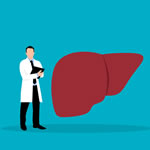 The Impact of Excessive Energy Drink Consumption on the Liver
The Impact of Excessive Energy Drink Consumption on the Liver A man who drank 2L of energy drinks daily almost became a lost cause
A man who drank 2L of energy drinks daily almost became a lost cause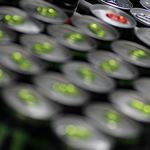 Energy Drinks and Urine
Energy Drinks and Urine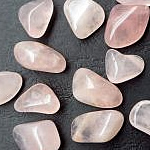 Energy drinks and urinary stones
Energy drinks and urinary stones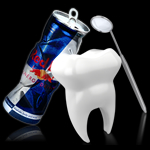 Do energy drinks cause tooth decay?
Do energy drinks cause tooth decay?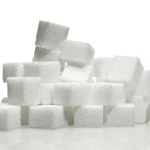 Energy drinks and diabetes
Energy drinks and diabetes


 Since 2001, Energy Drink Maniac has been drinking energy drinks and providing the most detailed reviews of global energy drinks based on firsthand research.
Since 2001, Energy Drink Maniac has been drinking energy drinks and providing the most detailed reviews of global energy drinks based on firsthand research.